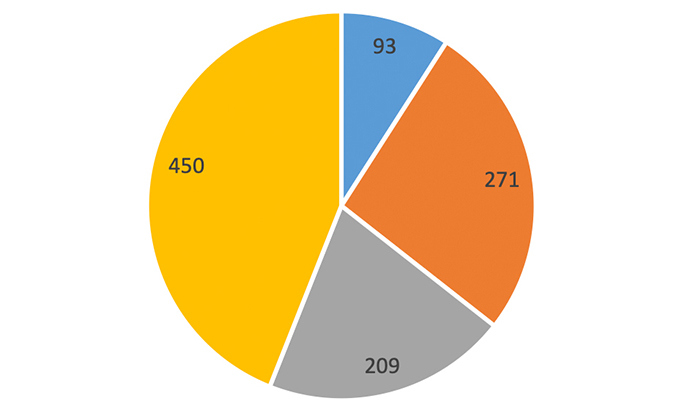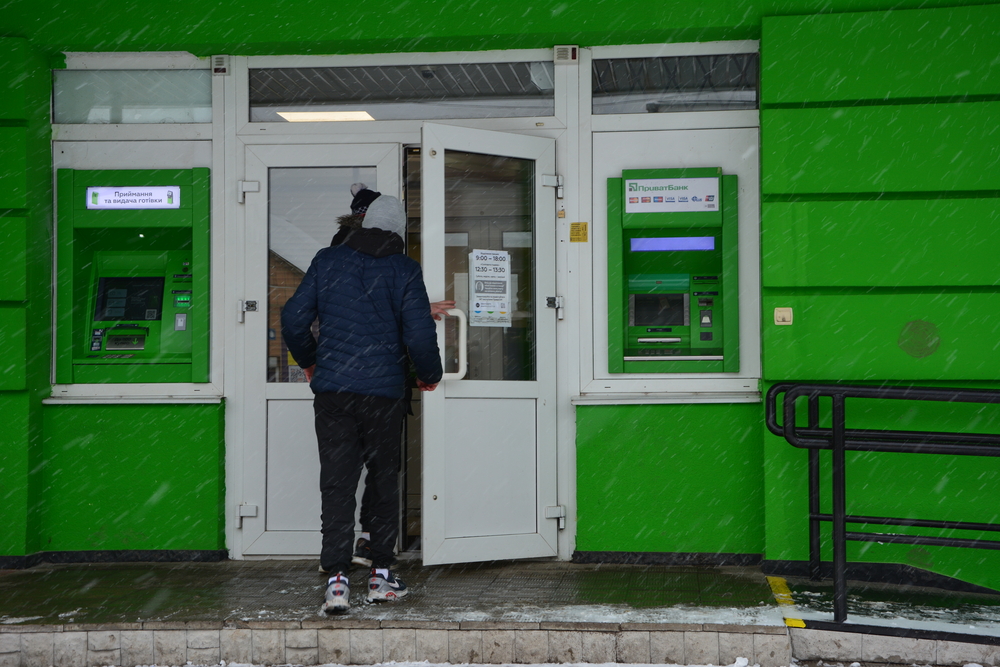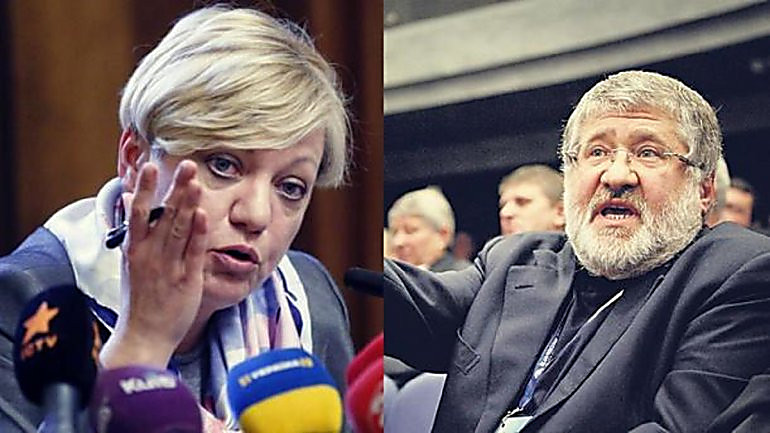The final version of the law seems to be balanced, as it takes into account that although the market should be opened, it also has to develop steadily, to avoid inflated or undervalued prices of land, and to avoid the concentration of land in the hands of a few monopolists.
Ukraine previously faced a similar scenario after the collapse of the Soviet Union where the state experienced the sudden release of state control over the economy and large-scale privatization of previously public-owned assets. This resulted in a race to strip all of the country’s assets by a few people who knew the value of these assets. As a result, the oligarchy in Ukraine was established through the consolidation of recently privatized state assets in the 1990s. That experience was the main reason as to why there were objections to the immediate opening of the land market.
The voting process was equally important, and it proved that President Zelenskyy willingly withdraws from populist rhetoric when it comes to promoting land reform, which is the main condition set by the IMF for Ukraine to receive a new loan. President Zelenskyy himself was present in the voting hall and, contrary to the pre-election TV-series Servant of the People, highlighted the importance of cooperation with the IMF and the need to open the land market.
Meanwhile, Zelenskyy’s Servant of the People party, which holds 56% of seats in the parliament, wasn’t able to reach an inner consensus on the law and failed to pass it. Thus, the president’s single majority proved to be an illusion as the party was divided. Instead, the land law was adopted by the ad-hoc coalition of MPs from pro-Zelenskyy Servant of the People, and anti-Zelenskyy European Solidarity and Holos.
The effect of the land reform regulations for the Ukrainian market
After the land market law was adopted in the first reading, more than 4,000 amendments were submitted by MPs to this six-page law. The Ukrainian parliament had to vote on each amendment, reject or approve it before the law could be approved in the final voting. The entire process took several months.
Although most of the amendments were submitted by the opponents of the law to entirely block it from passing, some amendments were aimed to promote a gradual opening of the market, so that not all Ukrainian land would be immediately purchased by oligarchs or international companies who have more money. Instead, the priority had to be given to local Ukrainian farmers. The toughest discussion that the MPs encountered was about the access that foreigners will have to the market. On 31 March, the MPs finally reached a consensus on the different amendments and passed the law.
1. A Strict protectionist market. Foreigners are not allowed to purchase land in Ukraine. Ukrainians are able to vote against this proposal in the referendum. However, foreigners can still rent land. Thus, there would be no significant difference for foreign agricultural companies in Ukraine who already rent land except for the gradual rent price increases.
The final version of the law also removes the possibility for foreign citizens to purchase Ukrainian land through Ukrainian legal entities owned by foreigners. According to the current law, only Ukrainian legal entities can buy land in Ukraine “participants (shareholders, members) of which are only citizens of Ukraine and / or the state, and / or territorial communities.”
2. The opening of the market will be postponed to 1 June 2021. At first, the opening of the market was planned for October 2020. However, MPs decided to postpone it due to the current economic situation from the COVID-19 crisis. This was done to give enough time for Ukrainian farmers to collect capital, mitigate the economic crisis and undergo preparations to purchase land once the market is opened.
One important aspect to consider is the ability of Ukrainian farmers to pay for land, which is still under question. There is a provision within the law regarding state programs for cheap loans, but they still have to be arranged by the government with money that should come from the limited state budget.
3. The gradual opening of the market: up to 100 hectares per farmer without legal entities participating in the market during the first stage. The transitional period has been introduced to the law. Until the end of 2023, one person can buy only up to 100 hectares of agricultural land. Legal entities are not eligible to buy land during the first period. The transitional period was designed to allow small local farmers to buy land first, and give access to the market for larger companies afterwards. This was the conditional amendment proposed by the Holos party in order for the party to support the law.
While a 100 hectares seems to be a good starting point, some deputies claim that the immediate transition from 100 hectares to 10,000 hectares in 2024 will lead to the concentration of land and emergence of local land monopolies.
4. 10,000 hectares per person/legal entity as the general limit for land purchase starting in 2024. This norm was heavily disputed as some MPs claimed that a limit of 10,000 hectares is too much per person, and that would allow a relatively large concentration of land per person or legal entity.
Why 10,000 hectares is a worrying limit for land purchases in Ukraine starting in 2024?
At present, there are no major landowners in Ukraine. The large share of land in Ukraine is still owned by the state, while the rest was distributed among members of former communist collective farms by small portions. Today, there are up to 7 million small landowners in Ukraine. People either lease this land to large companies, having very small rent payments, or establish their own small farms.
The limit of 10,000 hectares is a big deal for Ukraine since it will allow one person to purchase dozens or even hundreds of portions of land that were distributed among people after the collapse of the USSR. There is concern that this may give rise to local monopolies. 10,000 hectares is also the square of many Ukrainian local municipalities. Such a limit gives way for potential situations when there is only one landowner for the whole municipality.

On the opposite side of the spectrum, proponents of 10,000 or even larger purchase limits claim that in many European markets, there are no limits for land purchase at all. They also say that 10,000 is already a sufficient limit to prevent the largest Ukrainian agricultural holdings from buying land at a time when local farmers won’t have enough money yet. Each of these agricultural holdings is currently renting from 100,000 to 550,000 hectares of land. The 10,000 limit means they won’t be able to participate in the land market. As a result, they will have to continue renting land, but the price will grow. Therefore, small farmers will be in an advantageous situation.
However, the 10,000 limit also means that instead of having thousands of owners, large agricultural holdings can bypass this measure by renting land from 55 people that are connected to the group.
The limits that will be imposed on how much land each person can buy remains a hot issue in Ukraine. Other markets such as in the EU can exist with no limits at all. Ukraine is in a situation where they are in dire need of such limits during the initial stage to prevent the emergence of a new land oligarchy.
5. The land cannot be bought for a lower price than the minimal price defined by the state until the end of 2029. This is yet another regulation for the transitional period that is being established to avoid having the prices set too low for land because of weak competition in the market during the initial stage.
However, experts say that this regulation may prevent bad land from being sold. It depends on the method or definition of the minimal price that the state will use.

6. The privatization of the land that is in the state or municipal ownership is prohibited. This was the main amendment proposed by Poroshenko’s European Solidarity. Since the Ukrainian Parliament adopted the amendment, the European Solidarity party also threw its support behind the law.
The logic behind the amendment is to prevent the sale of state land for cheap prices, especially to oligarchs or people affiliated with their companies at a time of economic crisis when state officials will be tempted to sell state land to help shore up the budget. Also, the immediate sale of a huge amount of state land will drop the general price of the land, making the reforms less efficient. Finally, the land controlled by the state should constitute a so-called reserve fund.
However, there are also objections to this amendment. At present, the state owns 10.5 million hectares of agricultural land – around 25% of all agricultural land in Ukraine. The vast majority of state land is used very inefficiently,as here is official information for about 25% of the land. Only 20% of the land is properly marked in the state geocadastre (electronic map of land ownership). Even the borders for the remaining state lands are not properly marked on the electronic map. For the remaining 75% of state land, there is no official information at all. Unofficially, there are rumors that this land is being used illegally or through corrupt schemes.
Even going outside the context of the amendment, the successful launch of the land market depends on issues such as proper landmarking on the electronic geocadastre, and availability of cheap loans for the land purchase since most of the farmers in Ukraine are lacking capital.
7. Russian citizens, as citizens of the aggressor-state are prohibited from land ownership in Ukraine. Even if Ukrainians allow ownership of land by foreigners at the referendum. This proposal was an obvious one given the conflict with Russia, which was proposed by the Holos party, and approved by the parliament.
8. The land that lies closer than 50 km to the state border can’t be purchased by foreigners. Even if Ukrainians allow ownership of land by foreigners at the referendum.
This regulation was designed to prevent security threats connected to the purchase of land close to the borders. However, the impact of the regulation is disputable. Foreigners will still have the possibility to rent land near the border. This means that the regulation will have minimal effect on security. From an economic point of view, it will make the land near the border cheaper, discriminating against owners of this land.
How MPs voted for the law “under the pressure” of the IMF
Before the last parliamentary session, Zelenskyy met with his party. He tried to persuade MPs to vote for the land market reforms and also support the so-called “anti-Kolomoyskyi” law. The latter was meant to prevent the oligarch from taking back the largest Ukrainian bank that previously was bankrupt and subsequently nationalized by the state.
- Read also: Ukrainian parliament approves at first reading bill against oligarch Kolomoiskyi to receive IMF loan
However, Zelenskyy’s efforts were to no avail; as his own party – Servant of the People – holding 56% of seats, didn’t manage to pass any of the decisions on their own, including the land market reforms. Zelenskyy had to appeal to a broader coalition of MPs.
After parliament failed to appoint a new Minister of Health and a new Minister of Finance during a critical time for the country, Zelenskyy himself went to the Verkhovna Rada (Ukrainian Parliament). He spoke to the deputies, saying that all today’s decisions, and especially the anti-Kolomoyskyi law, and land market laws are critical for Ukraine to avoid default, and get a new loan from the IMF.
After the speech, deputies finally appointed a new Minister of Health and a new Minister of Finance. On 31 March late at night, the MPs were finally able to pass the land reform law. The law was only passed by a slim margin of votes. Till the last moment, both the European Solidarity and Holos parties were hesitating, according to the posts of MPs. The only reason why both parties got behind the bill was because their key amendments were approved. As a result, both parties mostly supported the law together with 80% of the Servants of the People’s party.
That is not the first time that the Servants party are questioning Zelenskyy’s symbolical authority over them. Two weeks ago, they wrote an open letter to Zelenskyy asking the president to cancel the latest Minsk agreements that raise the status of Russian proxy-republics in Donbas. On 2 April, deputies also asked Zelenskyy for a meeting to discuss the recent corruption scandal connected to the Head of Presidential Office. At the same time, some MPsfrom the Servant of the People’s party are openly serving the interests of oligarchs, and neglecting the country’s best interest.
Such a fracture within the president’s party means that Zelenskyy can no longer count on his personal single majority in the parliament. Instead, he will have to look for a broader consensus with the remaining part of Servant of the People’s party and some MPs among other parties in the parliament: pro-Russian Opposition Platform, Tymoshenko’s Batkivshchyna, Poroshenko’s European Solidarity and the Holos party – a party created by reformers from civil society.
Batkivshchyna party asks to cancel the land market law
Batkivshchyna and the Opposition Platform were in sharp opposition to any version of the land market reform, claiming that it will only serve to benefit western investors – although foreigners are not allowed to buy land in the final version of the law.
Subsequently, even after the adoption of the law, Batkivshchyna didn’t stop fighting against the law. The party submitted 7 different draft decrees to the parliament to cancel the law due to various reasons. One of the key arguments was that the law passed, but the law approval process was violated . As some amendments were being considered, the majority of deputies were not present in the parliament. As a result, this means that judicially, there can be cause to have the law be reconsidered.
Without the consideration of the submitted 7 decrees by the parliament and their rejection by the voting, the law can’t be signed by the president and attain legal status. Thus, the law is currently on hold. Whether the IMF will agree to provide the new loan program in such circumstances remains an open question.
Read also:
- Vitaly Portnikov: It’s simply a matter of life and death
- Ukrainian parliament approves at first reading bill against oligarch Kolomoiskyi to receive IMF loan
- Ukraine’s parliament replaces ministers of health and finance only 4 weeks after their appointment
- Why Ukrainian agribusiness cannot prevent property raiding for now
- First oyster farm in mainland Ukraine plans to ramp up production
- Ukrainian Donbas war veteran creates innovative poultry farm as part of SME-boosting program








